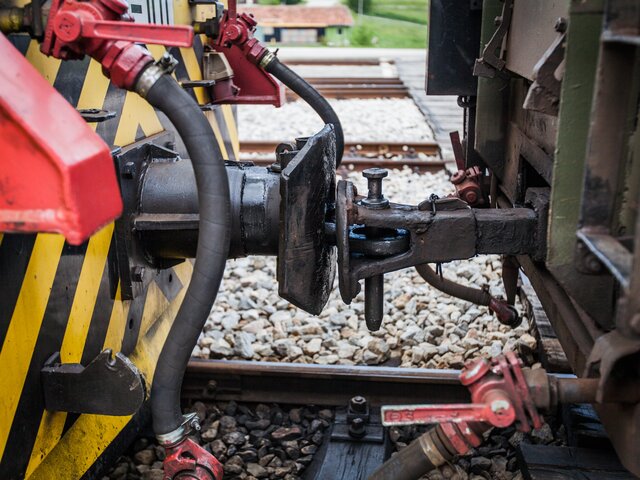Rail Engineering and Mechanical Failure Services
If there’s a prime example of surfaces interacting and the issues that can arise from this, it’s the rail industry.
From rolling stock to station infrastructure, physical contact, friction and improper lubrication can result in the failure of vital components. And, component and machinery failures can result in costly downtime, delays, general disruptions, and even catastrophic events such as derailments.
However, there is a solution; Neale Consulting Engineers.
The application of engineering understanding and best practice within the rail industry can unlock several benefits. These benefits include:
- Extending the service life of components, machinery and other assets
- Improved energy efficiency and reduced energy losses
- Reduced downtime and maintenance costs
- Improved safety
If you want to see how engineering understanding could improve your rail operations, then you need to speak to a consultancy that has real-world experience applying it in your industry. That consultancy is Neale Consulting Engineers.
Rail engineering and mechanical failure investigations
Engineering is a discipline which can be applied almost anywhere. If there are physical machines with moving parts, then engineering best practices can be applied.
However, there are always industry-specific nuances that need to be understood in order to deliver maximal value from applied engineering. That’s why you should choose a consultancy that has a demonstrated experience of working in the rail industry. You’ll find some examples of Neale Consulting Engineers’ experience below:
Rolling stock axle-box bearing failures
If there’s one area of the rail industry where bearing failures can prove catastrophic, it's with the axles of rolling stock. Even a small failure rate is unacceptable as the failure or seizure of an axle-box bearing could result in derailment.
Neale Consulting Engineers has undertaken numerous studies into the failure of axle-box bearings on rolling stock on behalf of several train operators. Our findings into the root cause of these bearing failures include:
- Electrical current damage
- Thermal expansion issues
- Contaminants such as water or dust entering the bearing
Escalator step chain reliability and development
Our experience spans beyond rolling stock and into the realm of rail infrastructure. A particularly pertinent example is an investigation we undertook for a major city metro system.
The network was experiencing issues with the premature wear of escalator step chains. This not only had the immediate cost implications of chain replacement, but also resulted in the downtime of escalators and a broader impact upon station operations.
Neale Consulting Engineers was commissioned to devise a solution.
We determined that the premature step chain wear was due to deficiencies in the design of the current step chains.
However, with lost lubricant (oil or grease) posing an unacceptable fire risk, Neale Consulting Engineers created, rig tested, and piloted a new design of step chain that required minimal lubrication. The result was a step chain design that is more reliable and less prone to premature wear and failure.
This innovation has subsequently been adopted by multiple other metro rail networks.
Passenger lift rope failures
For many rail networks - especially those with underground stations, elevators play a crucial role in the conveyance of passengers. These elevators are also typically subjected to continued usage for long stretches of time.
This can result in the premature failure of key components.
For example, one rail network was experiencing unacceptably short rope lives on some of their passenger lifts.
Upon commission Neale Consulting Engineers investigated and discovered that the lift mechanism design, although meeting all mandatory standards, was inherently suboptimal for the operating duty. We recommended improvements be made to the operating regime, and enhanced rope lubrication was introduced.
Furthermore, an improved specification for future lift mechanism procurement was suggested.
Points failure investigations
Neale Consulting Engineers has been commissioned to undertake studies of various points (also known as switches or turnouts) failures.
Our findings and recommendations have resulted in design improvements focused on the actuators and sensing mechanisms to improve reliability.
Applied engineering and mechanical failure for the rail industry
Engineering has many wide-reaching applications within the rail industry. But, the key to successfully applying engineering and mechanical failure principles in rail settings is to choose a consultancy that has relevant rail experience.
Established in the 1960s Neale Consulting Engineers has been the ‘go-to’ consultancy for tribology and wider engineering understanding for rail networks and train operators across the globe during that time.
Since 2023, Neale Consulting Engineers has been part of the Brookes Bell group. In addition to providing us with a global footprint, it allows us to draw upon a broader pool of expertise. Our wider team includes metallurgists, materials scientists, engineers, NDT technician and paint and coatings specialists. This multidisciplinary set up allows Neale Consulting Engineers to provide you with the most in-depth possible advice.
To find out how Neale Consulting Engineers can help, contact us today.
In need of rail operations engineering or mechanical failure assistance?
Then contact us now for a free, no-obligation consultation.

